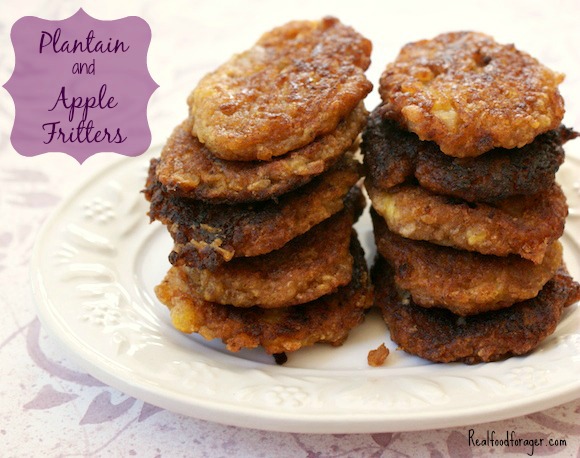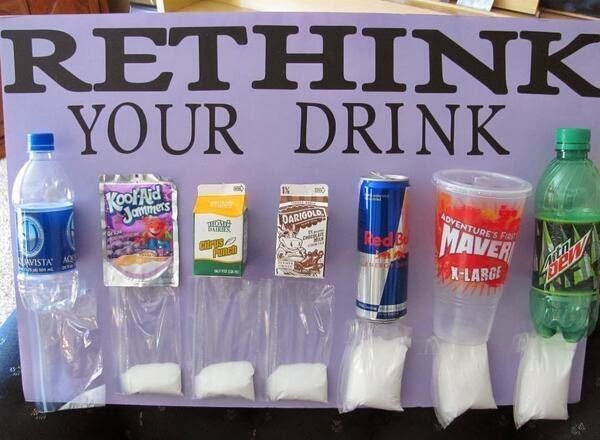
On day four of Gabe’s life, we found ourselves in the emergency room getting a quick blood test for bilirubin levels.
The kid hadn’t had a bowel movement for 40 hours and was looking a little yellow, and since it was a weekend and labs were closed, the ER was our only option to make sure he wasn’t seriously jaundiced.
The irony after having a baby at home and avoiding hospital germs was heavy upon me, you betcha.
He was perfectly fine, so I figure we paid about $1000 for this blog post. I hope you enjoy it!
Gentle Lessons on Vitamin K
My consolation when we left was that the staff had been so wonderful, clearly caring about our little one as much as we do. The resident doc on call had a little talk with us about the Vitamin K shot.
The concern in his eyes was evident as he told us he really strongly recommended the Vitamin K shot. You see, they had treated a baby with late onset hemorrhagic disease the month before…and I guess it was pretty awful.
I didn’t have the guts to ask what the outcome was for the child, nor would HIPPA likely allow him to answer, I figured. But it was clear that the entire staff was worked up about it, and he said they were now all on high alert about Vitamin K and its importance.
He shared how hemorrhagic disease works – that babies can have bleeding in the brain as late as 3-6 months of life – and it’s really hard to catch in time because parents aren’t exactly thinking “Lethargy = brain bleed.”
It had been so long since I’d done research on the subject – we had been opting out of K since my 6-year-old was born – that I couldn’t even remember if I knew what the risks of not getting it were.

I said I wasn’t a huge fan of most of the other ingredients usually found in injections and asked if there was an oral dose available. I was counting my lucky stars that I had just read something that week (from a reader, maybe) about how the oral K is a better option than the shot.
He said that they could offer that to us, but that it did include multiple doses that we would have to administer at home over the next few weeks.
I asked to see the ingredients and apologized for being “that mom,” but that “I don’t put anything into my baby I don’t understand.”
I might have to eat those words someday, but I’m doing the best I can with the resources and energy I have.
Here is the ingredient list they shared with me from the pharmacist (actually his “recipe” to make the liquid):
- Phytonadione suspension 1 mg/mL
- Crush (6) 5 mg tabs.
- Add 5 mL purified water and 5 mL methylcellulose.
- Add sorbitol 70% to a total volume of 30 mL.
- Expiration: 3 days. Refrigerate.
I was looking for artificial colors, parabens, other stuff I recognized as being nasty.
I got hung up on it as a sugar alcohol, a sort-of artificial sweetener pegged as “natural” but not really.
We Googled – it didn’t sound horrible, but some people get diarrhea if they chew gum including sorbitol daily.
We probably should have embraced that one considering we were in the ER for constipation, right?
We left with the information, the recommendation, and a prescription for our pharmacist to mix up a suspension of Vitamin K for us (which apparently we would have had to order and pick up multiple times, now that I noticed it has to be refrigerated and only lasts 3 days). I get that parents wouldn’t all do that. I totally get why docs default to the shot.
I wasn’t sure I wanted to do it either.
What is Hemorrhagic Disease?
More recently renamed “Vitamin K Deficiency Bleeding” or VKDB for accuracy, hemorrhagic disease of the newborn (HDN) is a bleeding disorder that occurs when the blood doesn’t clot.
Bleeding might be an issue at a circumcision point, belly button area, or (ironic) places where there has been a needle stick – and these are not great, but the real problem is if bleeding occurs in the gastrointestinal tract or the brain.
That’s where it often strikes in later onset VKDB, through 3-6 months of age.
That’ll land a baby in the hospital, and he might not make it out.
Scary stuff.
Some quick research showed us that newborns who get the shot have (pretty much) zero chance of developing VKDB, early or late.
Babies who take the oral dose still have some risk of deficiency, particularly late onset (which is worse).
As with so many medical decisions, this one didn’t seem as cut and dry as it used to.
I thought the Vitamin K shot was only needed for the first 8 or so days after birth.
I thought breastfeeding had to be “enough.”
I thought it wasn’t a big decision.
But it was.
And my biggest lesson?
Don’t rest on your research laurels.
We’re learning new things constantly and the technology and medications are constantly changing as well.
So just because you did or did not do something with one child doesn’t mean you should blindly follow even yourself with the next one!
I felt like the walls were closing in on this issue, and that we should give Gabe Vitamin K.
I just wasn’t sure if oral, with sorbitol, or an intramuscular injection would be preferred.

Vitamin K for Newborns: Shot vs. Oral Dose?
My husband read this article by Dr. Mercola and was a little disgusted that the good doctor put so much weight on the psychological harm of any injection so early in life. This article is a little silly, like Mercola is trying to look for a reason to make the “don’t do it” recommendation.
There are three primary areas of risk associated with these injections, according to Dr. Mercola:
- “Among the most significant is inflicting pain immediately after birth which has the potential to cause psycho-emotional damage and trauma to a newborn.” Really??? Come on, Mercola. Anything could be traumatic just after birth. There’s probably no more risk to a shot than to a bath! Newborns don’t know it’s any more painful than being cold and alone.
- “The amount of vitamin K injected into newborns is 20,000 times the needed dose. Additionally, the injection may also contain preservatives that can be toxic for your baby’s delicate, young immune system.” There are shots with no preservatives…
- “An injection creates an additional opportunity for infection in an environment that contains some of the most dangerous germs, at a time when your baby’s immune system is still immature.” At your own risk, I suppose. Our last baby was born at home, so no crazy germ-filled environment of the hospital.
Dr. Mercola’s guest dispelled the myth that the K shot causes leukemia, confirmed that the less expensive Vitamin K1 is just fine for the clotting intention of the injection, and seemed to support both the K shot or oral dose.
With most of the objections a non-issue in our minds, the big question left was:
What’s really in the shot?
Vitamin K Shot Ingredients
This site lists ingredients in a shot with NO preservatives like the one my midwife could offer:
- 1 mg of Vitamin K1, a fat-soluble vitamin derived from plants
- 10 mg of Polysorbate 80, which helps Vitamin K1 (a fat-soluble Vitamin) dissolve in liquid for the injection. Polysorbate 80 is made from natural sorbitol and plant-based oleic acid, is used in a wide variety of foods, medicines, and vitamin supplements, and is included in the Handbook of Green Chemicals.
- 10.4 mg of Propylene glycol, which helps absorb extra water and maintain moisture in certain medicines. Propylene glycol has been recognized as safe by the FDA for use in food products.
- 0.17 mg of Sodium acetate anhydrous, a mixture of salt and bicarbonate, that is used to adjust the pH of the injection
- 0.00002 mL of Glacial acetic acid, also known as vinegar, that is used to adjust the pH of the injection
You know what’s crazy? In the first week of my newborn’s life, after doing some research but mostly talking to our midwife, whom we trust, we just went for it.
On day 8 of Gabe’s life, without actually reading the ingredients, we injected him with the Vitamin K shot at home, while he happily nursed his cares away.
His body was certainly starting to synthesize Vitamin K in the liver already, so the shot will only protect him from late-onset VKDB, and I hope we did the right thing.
Sometimes, there’s only so much one brain can handle, and my brain had had it.
I’m just counting on my sources from reading this week being correct, and that the benefit of the intramuscular shot – that it may release Vitamin K slowly into the body over time – ends up being a good thing for our little guy.

Other Important Tidbits About Vitamin K and Newborns
- One can get adequate amounts from foods: K1 from leafy green vegetables and K2 synthesized from the bacteria in our guts, but also in foods like grassfed beef and dairy, butter and cheese, egg yolks, and organ meats. (sources: 1, 2, 3)
- Very little K crosses the placenta.
- Mothers do demonstrate a marked decrease in Vitamin K in the third trimester of pregnancy, and one theory is that they are passing it on to baby, but that’s not been proven.
- Vitamin K does move through breastmilk, so supplementation in the mother could help (after birth).
- Vitamin K deficiency also can cause tooth decay…not a problem for Gabe of course, but perhaps he siphoned some of mine – more on that next week!
- The Internet, as usual, is full of misinformation, including lists of ingredients that include aluminum, preservatives and other weird ingredients, the leukemia myth, and more. Perhaps you need to ask for the preservative-free version, but those ingredients lists can’t be a deciding factor in my opinion (unless the preservative-free version isn’t available).
- Breastfeeding is a major risk factor for VKDB. Formula-fed infants don’t really experience it at all.
- The cause of much VKDB is completely unknown.
- The shot has been the standard of care since 1961.
- It wasn’t until 1999 that the medical community officially realized that Vitamin K deficiency could cause bleeding beyond the first few weeks of life…
Sources: 1 (from our midwife), 2 (from the ER doc), 3, 4, 5, 6
I’m still not sure if I made the right decision in my postpartum haze.

But each decision, each vaccine, each medication recommended, is an individual decision for that child, for that moment in time, with the information we have available.
This time, this place, this baby…we did it.
And as confusing as the process was (and is, to an extent), I know that when I look at that sweet little face, all I want to do is protect him from the ills of the world, cuddle him close, and love him harder.
Will you give your baby the vitamin K shot? Or the oral dose? Do your own research and be informed before baby arrives.
Other labor and delivery posts:
Original article and pictures take www.kitchenstewardship.com site













